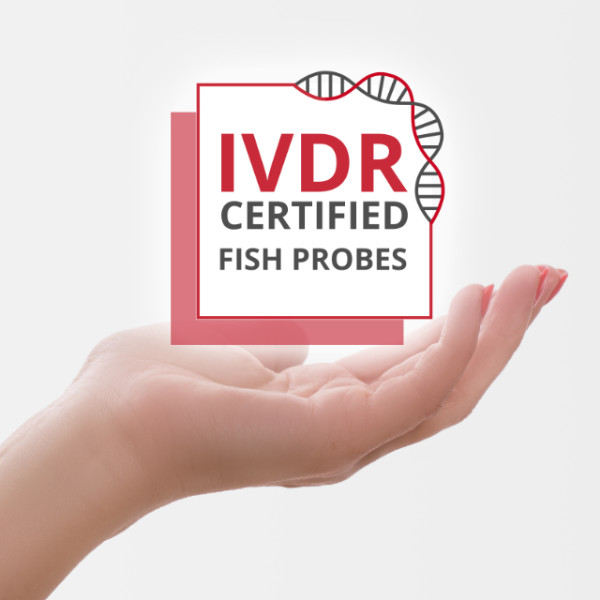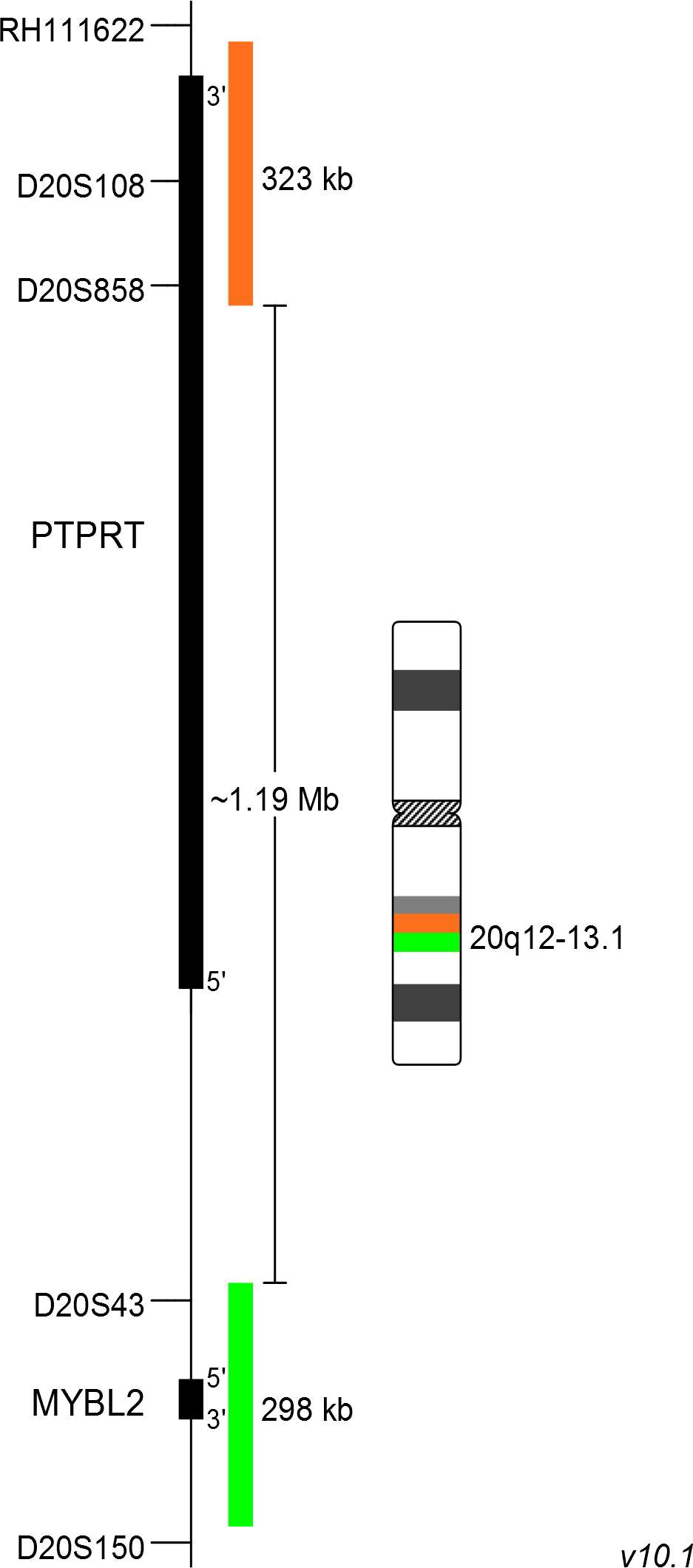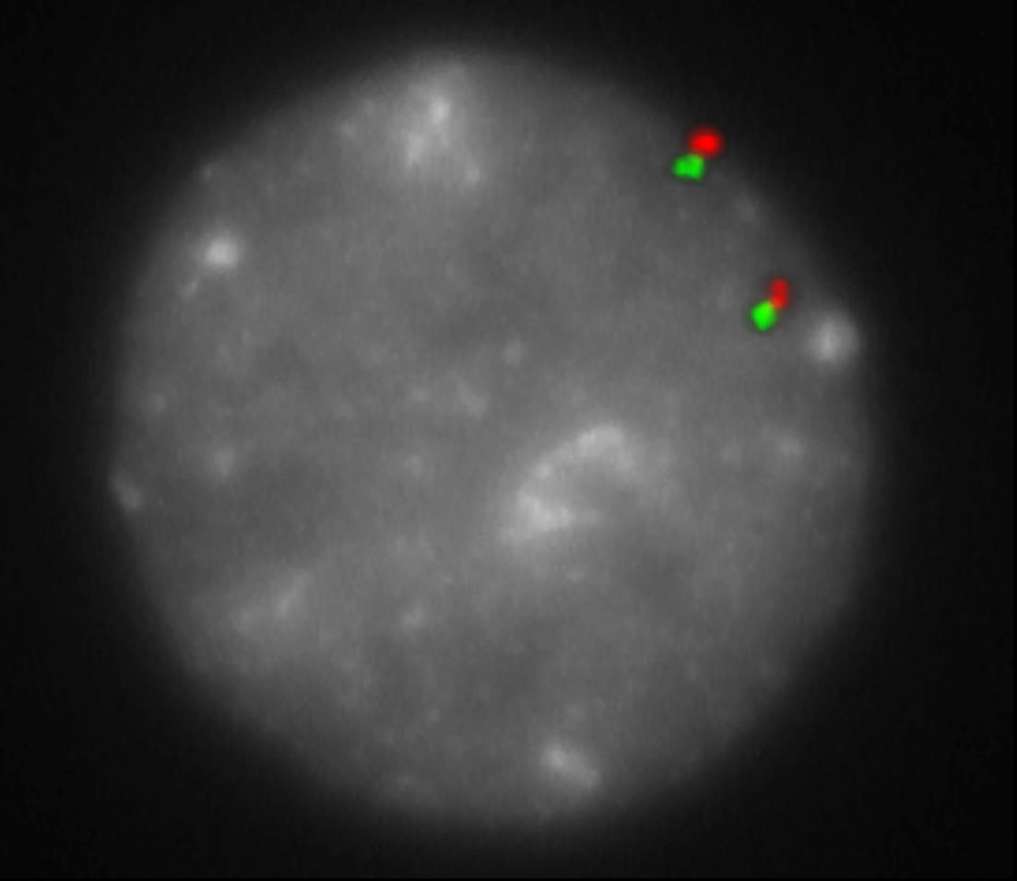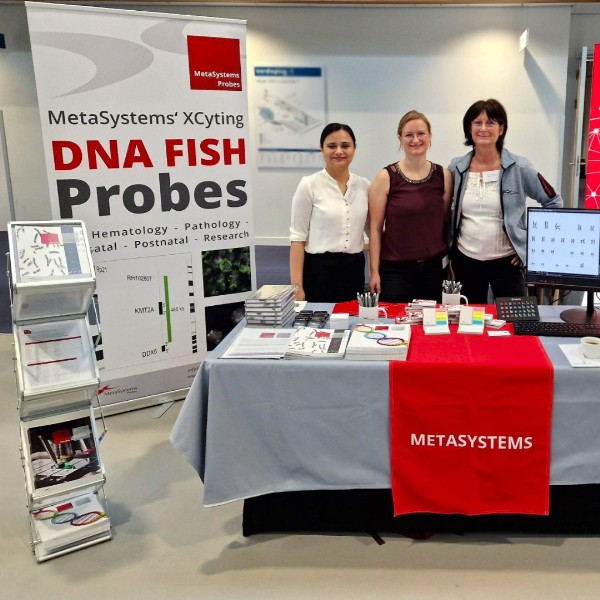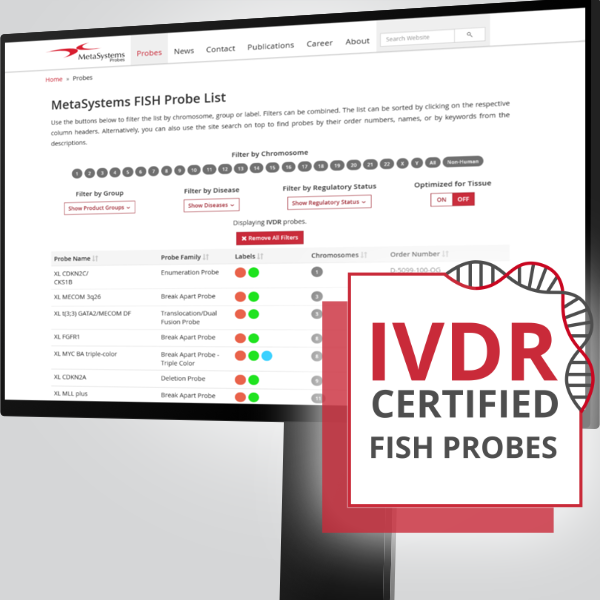Myelodysplastic syndromes (MDS) are a group of hematopoietic stem cell disorders associated with ineffective hematopoiesis and peripheral blood cytopenias. MDS patients have a significant risk of progression to acute myeloid leukemia. In about 50% of de novo MDS, cytogentic aberrations are observed; deletions are predominant, translocations are rare. Recurrent abnormalities are del(5q), monsomy 7, del(7q), del(20q), del(17p) and del(11q).
Del(20q) is a recurrent but rare aberration and is present in about 3-7% of MDS patients. The majority of cases have an interstitial deletion which is flanked by the PTPRT gene and includes the MYBL2 gene. Sole del(20q) is associated with a more favorable outcome.
Clinical Applications
- Myelodysplastic Syndrome (MDS)
- Acute Myelogenous Leukemia (AML)
